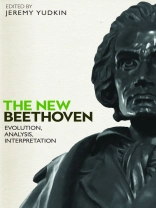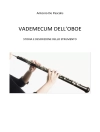Marking the 250th anniversary of the composer’s birth, this volume presents twenty-one completely new essays on aspects of Beethoven’s personal life, his composing process, his manuscripts, and his greatest works.
Beethoven’s music stands as a universal symbol of personal and artistic achievement. As we reach and then surpass the 250th anniversary of the composer’s birth, Jeremy Yudkin has commissioned a collection of new essays from some of the most insightful writers on Beethoven’s accomplishments and brought them together in this remarkable volume. Filled with careful explanations, this book gives us completely new insights into music known and loved by people around the world.
Ordinary music lovers as well as scholars will find countless new discoveries about Beethoven and his music. Listeners will hear his compositions afresh, and scholars will find new results of research and analysis and new avenues for discovery. Topics include Beethoven’s cultural milieu, his personal life, his friends, his publishers, his instruments, his working methods, his own handwritten scores, and, of course, his music. Many works are carefully discussed and explained in ways that reveal fascinating and previously unknown aspects of compositions that we thought we knew well. A landmark publication for all who admire some of the greatest music of our civilization.
Jadual kandungan
Preface – Jeremy Yudkin
Introduction – Jeremy Yudkin
PART ONE: A Creative Life
Of Deserters and Orphans: Beethoven’s Early Exposure to the
Opéras-comiques of Monsigny – Steven Moore Whiting
‘A really excellent and capable man’: Beethoven and Johann Traeg – David Wyn Jones
A Four-Leaf Clover: A Newly Discovered Cello, the Premiere of the Ninth Symphony, Beethoven’s Circle of Friends in Bonn, and a Corrected Edition of the Song Ruf vom Berge, Wo O 147 – Michael Ladenburger
‘Where Thought Touches the Blood’: Rhythmic Disturbance as Physical Realism in Beethoven’s Creative Process – Bruce Adolphe
The Sanctification of Beethoven in 1828 – Christopher Reynolds
PART TWO:
Prometheus/’Eroica’
The Prometheus Theme and Beethoven’s Shift from Avoidance to Embrace of Possibilities – Alan Gosman
Beethoven at Heiligenstadt in 1802: Deconstruction, Integration, and Creativity – William Kinderman
‘Mit Verstärkung des Orchesters’: The Orchestra Personnel at the First Public Performance of Beethoven’s
Eroica – Theodore Albrecht
PART THREE: Masses
‘Aber lieber Beethoven, was haben Sie denn wieder da gemacht?’: Observations on the Performing Parts for the Premiere of Beethoven’s Mass in C, Op. 86? – Jeremiah Mc Grann
Heart to Heart: Beethoven, Archduke Rudolph, and the Missa
Solemnis – Mark Evan Bonds
God and the Voice of Beethoven – Scott Burnham
PART FOUR: Quartets
‘So Here I Am, in the Middle Way’: The Autograph of the ‘Harp’ Quartet and the Expressive Domain of Beethoven’s Second Maturity – M. Lucy Turner
Meaningful Details: Expressive Markings in Beethoven Manuscripts, with a Focus on Opus 127 – Nicholas Kitchen
The Autograph Score of the Slow Movement of Beethoven’s Last Quartet, Op. 135 – Barry Cooper
Early German-Language Reviews of Beethoven’s Late String Quartets – Robin Wallace
PART FIVE: Explorations
Three Movements or Four? The Scherzo Movements in Beethoven’s Early Sonatas – Erica Buurman
Utopia and Dystopia Revisited: Contrasted Domains in Beethoven’s Middle-Period F-Major and F-minor Works – Barbara Barry
Schooling the
Quintjäger – David Levy
Cue-Staff Annotations in Beethoven’s Piano Works: Reflections and Examples from the Autograph of the Piano Sonata, Op. 101 – Federica Rovelli
‘Another Little Buck out of Its Stable’ – Richard Kramer
Beethoven’s Cavatina, Haydn’s Seasons, and the Thickness of Inscription – Elaine Sisman
Mengenai Pengarang
THEODORE ALBRECHT, Professor Emeritus of Music at Kent State University, Ohio, is an award-winning Beethoven scholar. He has authored many important articles on the composer and is the editor of Letters to Beethoven and Other Correspondence (1996) as well as translator and editor of Beethoven’s Conversation Books (Boydell Press).












